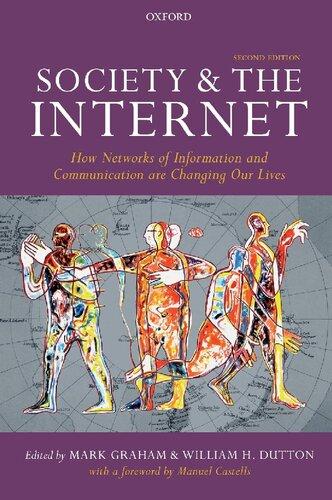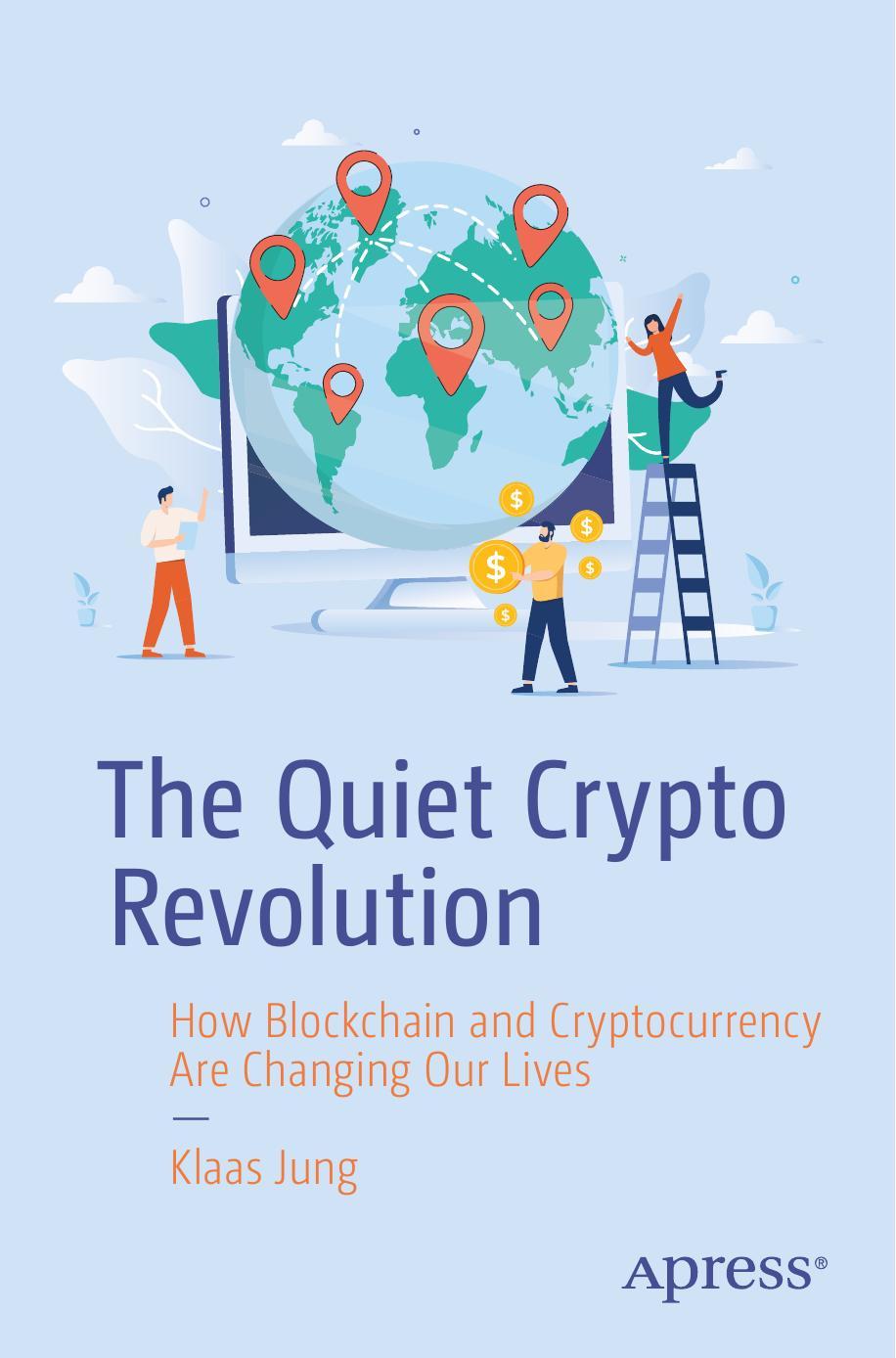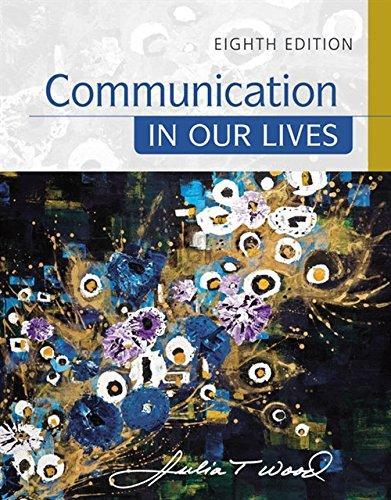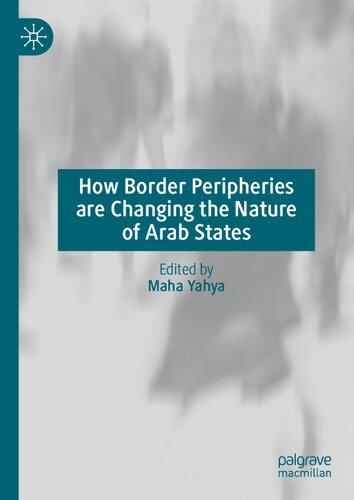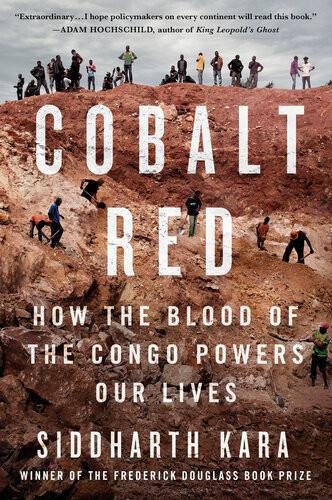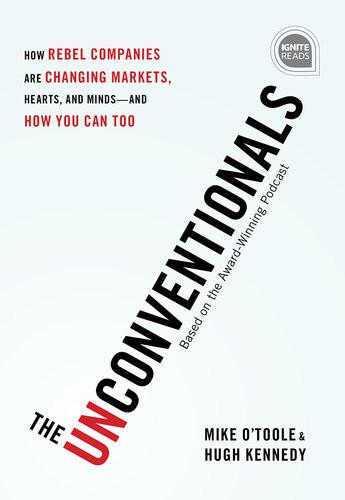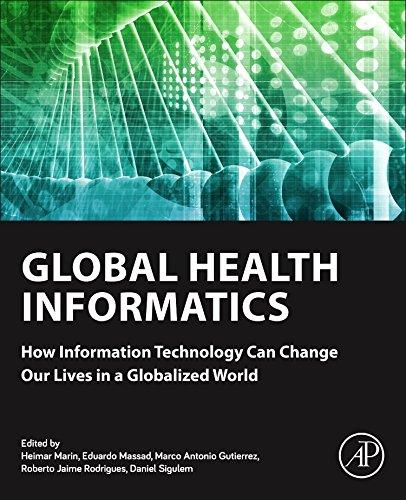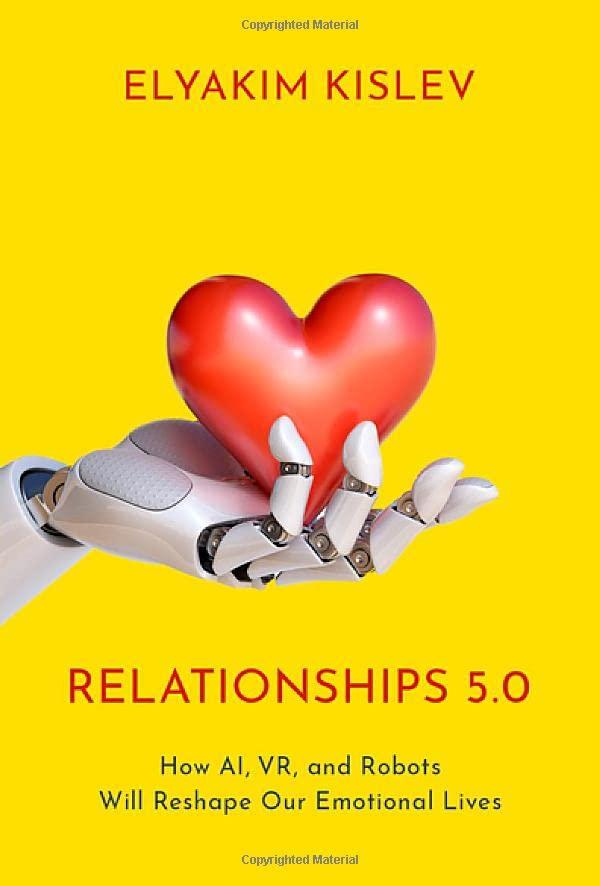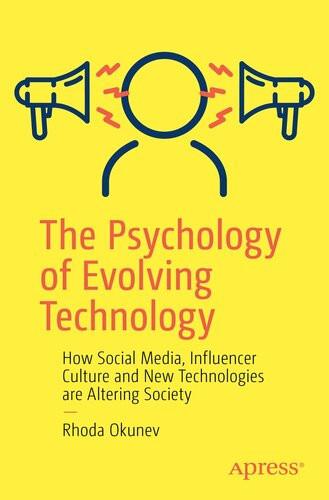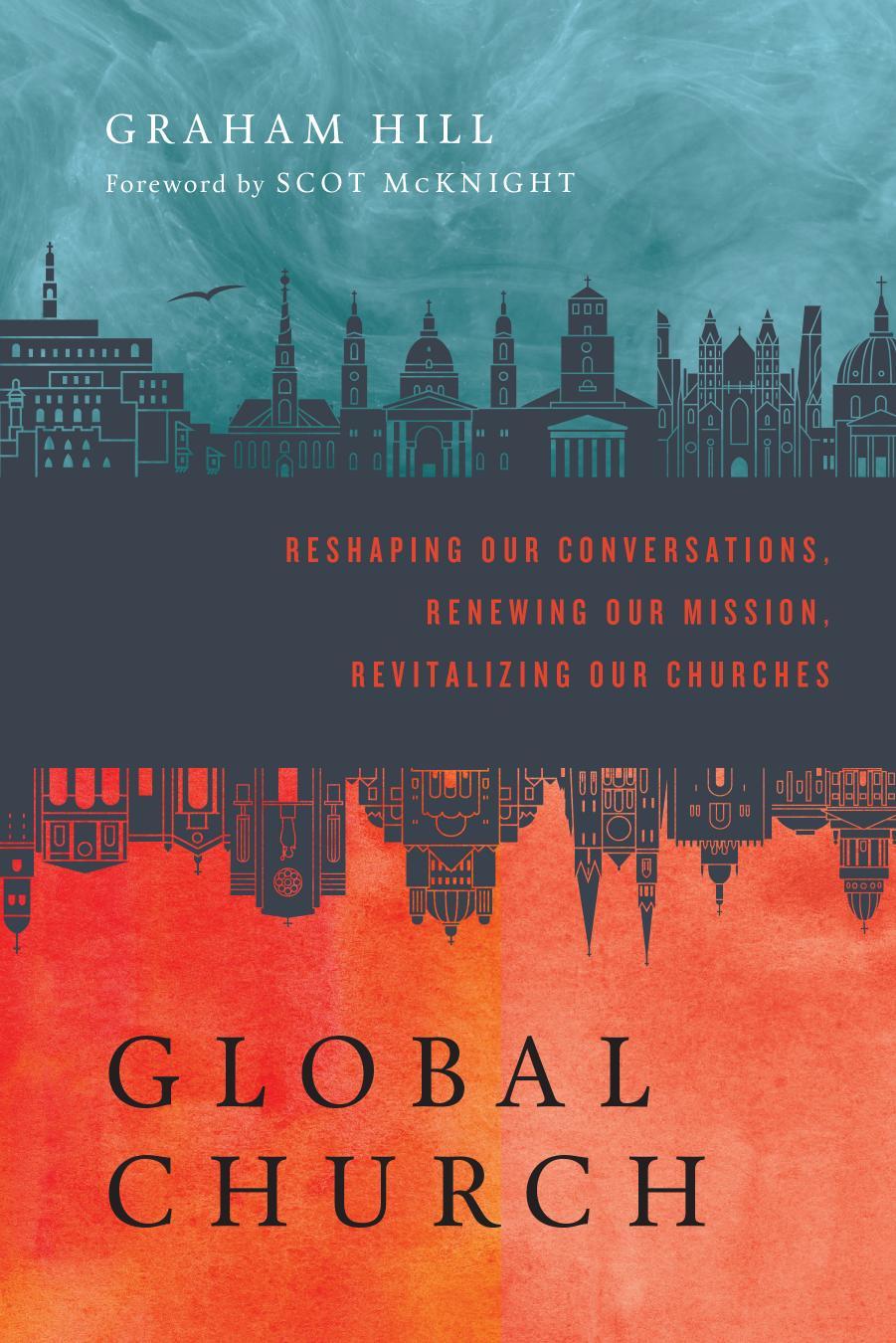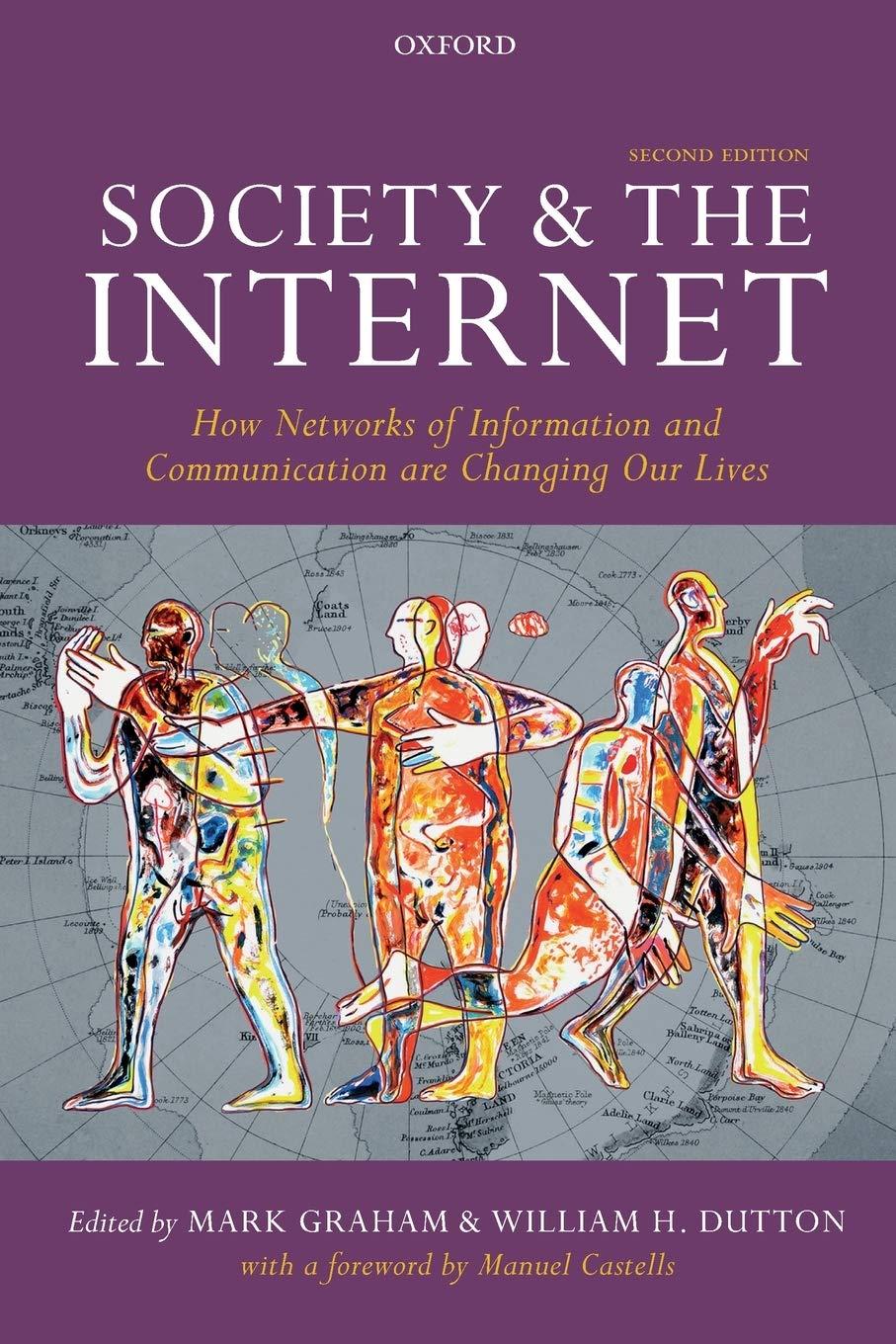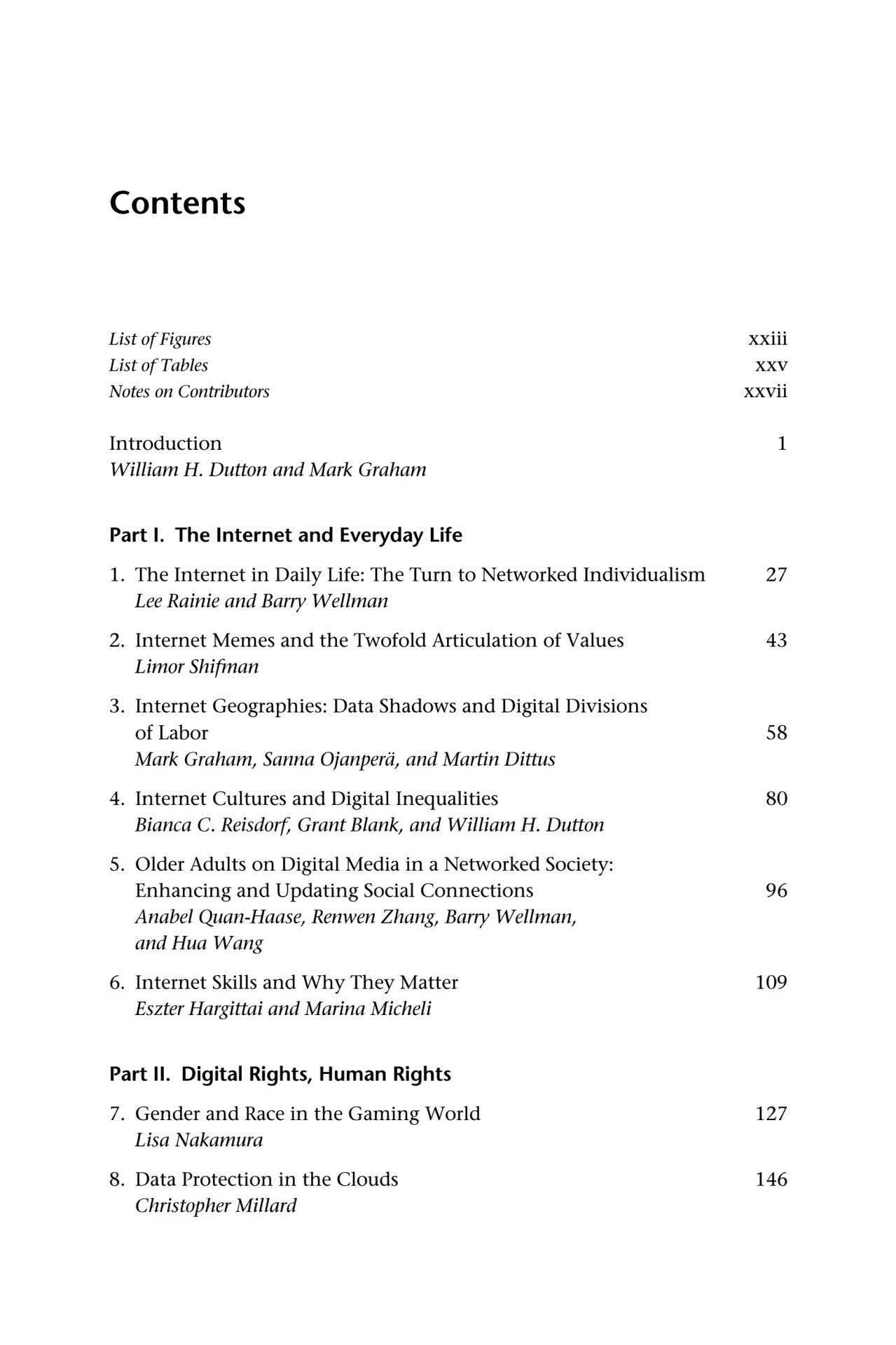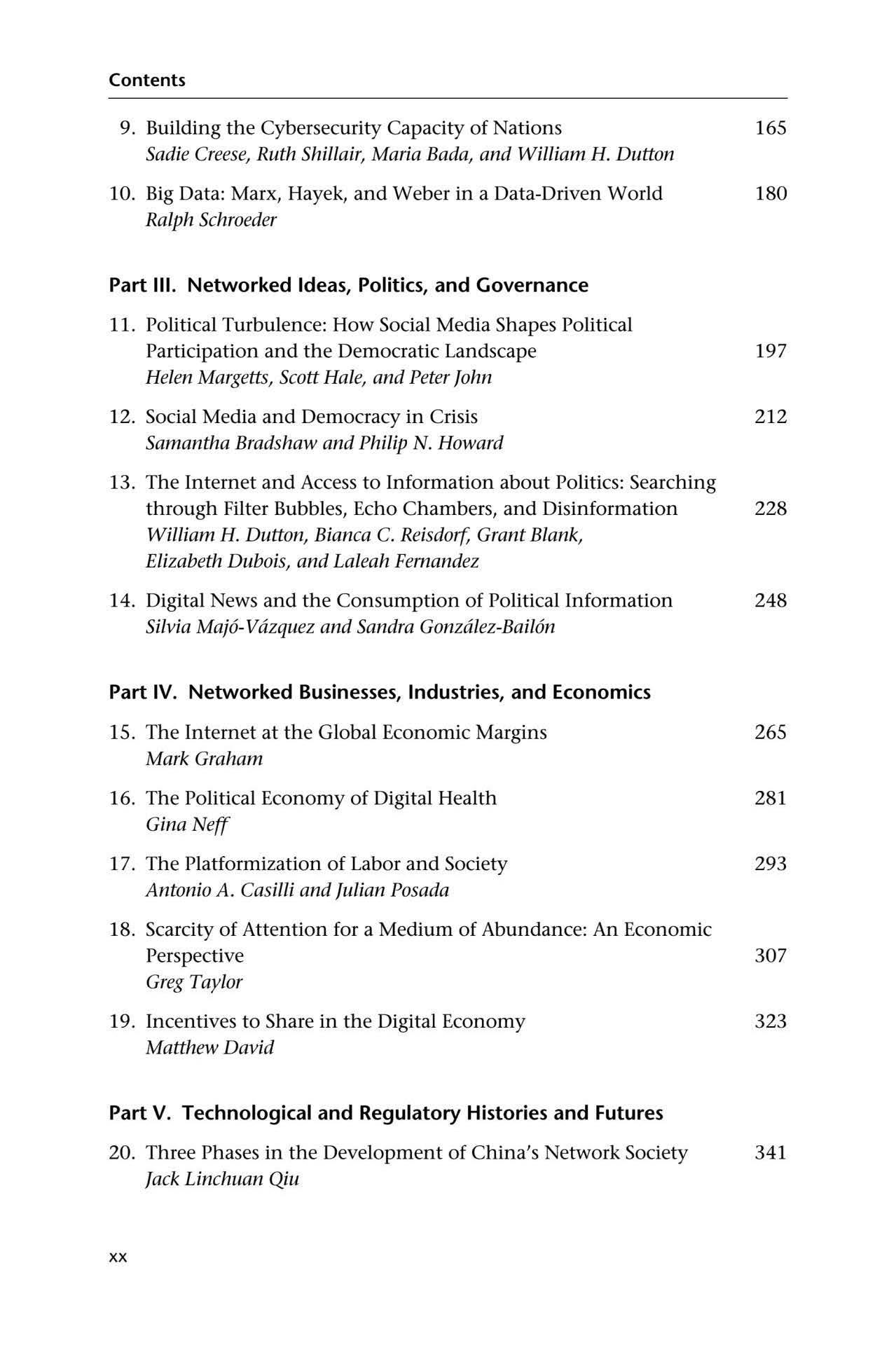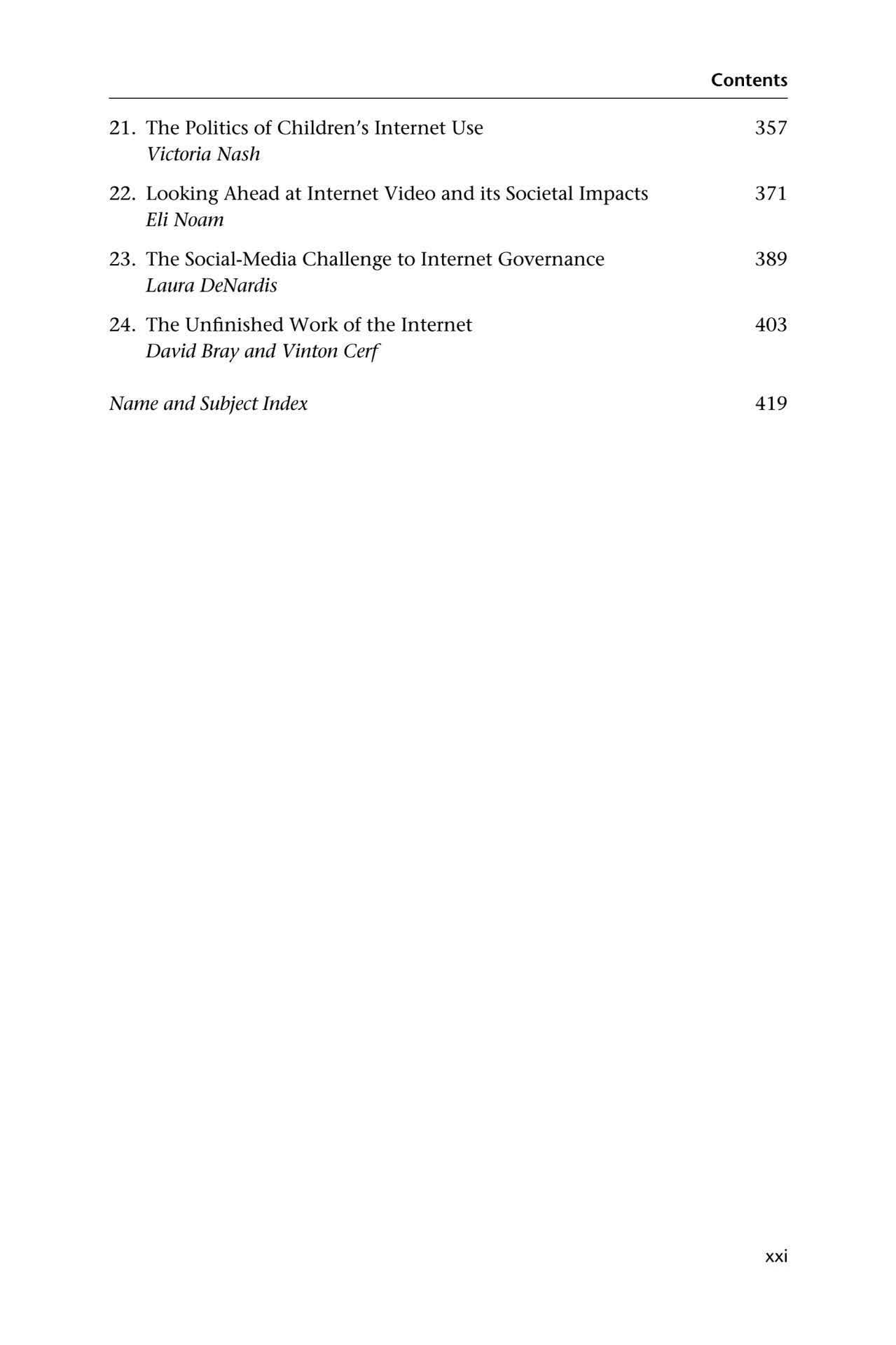Society and the Internet:
How Networks of Information and Communication are Changing Our Lives 2nd Edition Mark Graham (Editor) Visit to download the full and correct content document: https://ebookmass.com/product/society-and-the-internet-how-networks-of-informationand-communication-are-changing-our-lives-2nd-edition-mark-graham-editor/
More products digital (pdf, epub, mobi) instant download maybe you interests ...
The Quiet Crypto Revolution: How Blockchain and Cryptocurrency Are Changing Our Lives 1st Edition Klaas Jung
https://ebookmass.com/product/the-quiet-crypto-revolution-howblockchain-and-cryptocurrency-are-changing-our-lives-1st-editionklaas-jung/
Communication in Our Lives 8th Edition
https://ebookmass.com/product/communication-in-our-lives-8thedition/
How Border Peripheries are Changing the Nature of Arab States Maha Yahya
https://ebookmass.com/product/how-border-peripheries-arechanging-the-nature-of-arab-states-maha-yahya/
Cobalt Red. How the Blood of the Congo Powers Our Lives Siddharth Kara
https://ebookmass.com/product/cobalt-red-how-the-blood-of-thecongo-powers-our-lives-siddharth-kara/
The Unconventionals: How Rebel Companies Are Changing Markets, Hearts, and Minds-and How You Can Too Mike Otoole
https://ebookmass.com/product/the-unconventionals-how-rebelcompanies-are-changing-markets-hearts-and-minds-and-how-you-cantoo-mike-otoole/
Global Health Informatics: How Information Technology Can Change Our Lives in a Globalized World Heimar De Fátima Marin
https://ebookmass.com/product/global-health-informatics-howinformation-technology-can-change-our-lives-in-a-globalizedworld-heimar-de-fatima-marin/
Relationships 5.0: How AI, VR, and Robots Will Reshape Our Emotional Lives Elyakim Kislev
https://ebookmass.com/product/relationships-5-0-how-ai-vr-androbots-will-reshape-our-emotional-lives-elyakim-kislev/
The Psychology of Evolving Technology: How Social Media, Influencer Culture and New Technologies are Altering Society 1st Edition Rhoda Okunev
https://ebookmass.com/product/the-psychology-of-evolvingtechnology-how-social-media-influencer-culture-and-newtechnologies-are-altering-society-1st-edition-rhoda-okunev-2/
GlobalChurch: Reshaping Our Conversations, Renewing Our Mission, Revitalizing Our Churches Graham Hill
https://ebookmass.com/product/globalchurch-reshaping-ourconversations-renewing-our-mission-revitalizing-our-churchesgraham-hill/
SocietyandtheInternet MomentsintheDevelopmentoftheInternet 1950s: Early development of computing for domestic purposes
1962: Doug Englebart began design of an “oN-Line System” (NLS), demonstrated in 1968
1967: L. G. Roberts publishes his plan for the ARPANET at DARPA
1972: ARPANET’s first public demonstration
1973: TCP/IP is developed by Robert Kahn and Vint Cerf
1982: Internet Protocol Suite (TCP/IP) is standardized
1989: Tim Berners-Lee and CERN colleagues invent the World Wide Web; Réseaux IP Européens (RIPE) is formed by European service providers
1991: World Wide Web service becomes publicly available on the Internet
1993: Mosaic Web browser developed, soon commercialized as Netscape Navigator
1995: Internet commercialized, Netscape launched, Amazon.com and eBay are founded
2001: Tim Berners-Lee and others call for a new semantic (data) web
2001: Original peer-to-peer file-sharing music site, Napster, is shut down.
1960: J. C. R. Licklider’s call for a global network
1963: Ted Nelson coins the term “hypertext”
1969: ARPANET Commissioned by US Department of Defense for research on networking; and the first message is sent over the network
1972: e-mail system begins on ARPANET
1981: US National Science Foundation (NSF) develops the Computer Science Network (CSN), later NSFNET, expanding ARPANET
1986: NSFNet created
1990: ARPANET decommissioned, ceases to exist
1992: Internet Society is chartered; World Wide Web is released by CERN
1994: World Wide Web Consortium (W3C) founded; NSFNET decommissioned
1998: Google starts as a research project at Stanford University
2001: Wikipedia is founded by Jimmy Wales and Larry Sanger.
2003: Hacktivist group Anonymous is formed.
2005 2004: Social networking site, Facebook, is launched
2005: YouTube is launched
2007: The iPhone is publicly released, popularizing mobile applications (apps)
2011: Face Recognition and Voice Search commercially available
2013: Edward Snowden leaks classified information about the global surveillance operations being conducted by most Western powers.
2017: European Union’s General Data Protection Directive (GDPR) comes into force
2015 2010 2006: Wikileaks is launched by Julian Assange.
2007: One of the first large statesponsored cyber-attacks is launched on Estonia by Russia
2009: The first block of the Bitcoin chain is mined.
2013: Silk Road, the first modern darknet marketplace, is shut down.
2016: Cambridge Analytica micro-targets US voters in the presidential election
2020 2019: The Internet reaches 3.9 billion people, over half (51.2 percent) of the world’s population.
SocietyandtheInternet HowNetworksofInformationand CommunicationareChangingOurLives SecondEdition
Editedby MarkGrahamandWilliamH.Dutton
withaforewordby ManuelCastells
GreatClarendonStreet,Oxford,OX26DP, UnitedKingdom
OxfordUniversityPressisadepartmentoftheUniversityofOxford. ItfurtherstheUniversity’sobjectiveofexcellenceinresearch,scholarship, andeducationbypublishingworldwide.Oxfordisaregisteredtrademarkof OxfordUniversityPressintheUKandincertainothercountries
©OxfordUniversityPress2019
Themoralrightsoftheauthorshavebeenasserted
FirstEditionpublishedin2014
SecondEditionpublishedin2019
Impression:1
Allrightsreserved.Nopartofthispublicationmaybereproduced,storedin aretrievalsystem,ortransmitted,inanyformorbyanymeans,withoutthe priorpermissioninwritingofOxfordUniversityPress,orasexpresslypermitted bylaw,bylicenceorundertermsagreedwiththeappropriatereprographics rightsorganization.Enquiriesconcerningreproductionoutsidethescopeofthe aboveshouldbesenttotheRightsDepartment,OxfordUniversityPress,atthe addressabove
Youmustnotcirculatethisworkinanyotherform andyoumustimposethissameconditiononanyacquirer
PublishedintheUnitedStatesofAmericabyOxfordUniversityPress 198MadisonAvenue,NewYork,NY10016,UnitedStatesofAmerica
BritishLibraryCataloguinginPublicationData
Dataavailable
LibraryofCongressControlNumber:2019930267
ISBN978–0–19–884349–8(hbk.)
ISBN978–0–19–884350–4(pbk.)
Printedandboundby CPIGroup(UK)Ltd,Croydon,CR04YY
LinkstothirdpartywebsitesareprovidedbyOxfordingoodfaithand forinformationonly.Oxforddisclaimsanyresponsibilityforthematerials containedinanythirdpartywebsitereferencedinthiswork.
Foreword Internet:Utopia,Dystopia,andScholarlyResearch TheInternethasbecomethefabricintowhichourlivesarewoven.Itis relentlesslychangingourcommunicationenvironment.Andcommunication istheessenceofbeinghumans.Itisnot “Ithink,thusIexist,” but “Icommunicate,thusIexist”.IfIdonotcommunicate,nooneknowswhatIthought andthereforeIexistonlyinmyinnerself whichonlybecomesfullyhuman whenIleavemyshellandIventureintothewondersandsurprisesoflife.
Indeed,formsandtechnologiesofcommunicationhavedifferentiatedour societiesthroughouthistory.TheadventoftheInternethasrepresenteda quantumleapinthetransformationofcommunication.Yet,halfacentury afterits firstdeployment(in1969)thesocialmeaningofthisinteractive, multidirectional,global,digitalnetworkofcommunicationremainsobscured inthemedia,intheinstitutions,andinpeople’sminds,bytheutopiasand dystopiasthatemergedfromtheverymomentofitsinception.
UtopianshailedtheInternetasthecomingofthekingdomoffreedom. Freedomfromthestate,andfrombigcorporations.
Dystopianswarnedagainstatechnologythatwouldbringwidespreadisolationandalienationtosociety,aspeoplewouldbetransformedintonerds miredtotheircomputersdayandnight,leavingrealityandbeingsubmerged intovirtuality.Furthermore,BigBrotherwouldusethepervasivenessofthe Internettoconstructadigitalpanopticonandestablishasurveillancesystem asneverbeforepossible.
Bothpositionswereprovenrightandwrongatthesametime.
Ontheonehand,itistruethatunfettered,multimodal,ubiquitous communicationhasextraordinarilyenhancedthecapacityofindividualsto constructthenetworksoftheirlives.Insodoing,theyhavelargelybypassed themass-mediacontrolexertedbyeithergovernmentsormediacorporations, creatingaspaceofautonomythathasimpactedeverything,frombusinessto socialmovements,fromculturalcreativitytotheriseofthesharingeconomy. However,stateshaverushedtolimitthenewlydevelopedfreecommunicationbysettingupsophisticatedsystemsofcensorship,byblockingaccessto websites,byapprovingandenforcingrestrictivelegislation,byengagingin
cyberwarfare,andbyinducingmassivedisinformation,amplifiedbyarmiesof robotsthatpopulatedigitalnetworks.Asforthecorporationsrunningthese networks,theyhavebecomegiganticoligopolies,andhaveusedtheircontrol oftraffictotransformourlivesintodata,thesourcesoftheirprofits:data capitalismisafundamentalindustryofthetwenty-first-centuryeconomy. Freedomofinformationisthesubjectofadecisive fightagainstthefreedom ofproducingandpropagating “fakenews.”
Ontheotherhand,themythofthealienatedInternetuserhasbeen debunkedrepeatedlybya flurryofstudiesthathavefoundtheobvious:sociabilityishybrid(asitalwayswas),madeofbothface-to-faceandtechnologymediatedinteraction.Ofcourse,therearepeoplealienatedandisolated amongusers.Astheyareinthewholeofsociety.Infact,theInternethas alleviatedthesefeelings,byprovidinganalternativeforpeoplewhotendnot tobeverysociable.And,yes,anewpatternofsociabilityhasemerged:itis whatweconceptualizeasnetworkedindividualism.Individualismisthe predominantcultureofoursocietiesbecauseofanumberoffactorsthatare notrootedintechnology.WhattheInternetdoesistoprovideanappropriateplatformforthefulldevelopmentofthisnewformofsociability.The Internetandsocialmediaareassociableasanyotherformsofmediated communication:intraditionalsociologicalterms,wemovedfromcommunitytoassociation,andthenfromassociationtonetworking.
Yet,thedystopianviewoftheInternet findsstrongsupportintheextraordinaryriseofgovernmentsurveillanceapparatusesafter2001,exploitingthe emotionandthefearcausedbytheterroristattackson9/11.AsMichaelHayden, thedirectoroftheUSNationalSecurityAgency(NSA)saidatthetime, referringtothedifficultyof findingterroristsinaworldofever-growinginformation: “Inorderto findaneedleinahaystack,Ineedtheentirehaystack.”
Thus,whilemostofthealarmaboutthepowerofdigitalBigBrotherhas beenaimedattheattempttocontrolInternetcommunicationbyChina,in facttheNSAhasbecomethecoreofthemostcomprehensivesurveillance systemontheplanet,particularlythroughitsconnectionwiththesophisticatedBritishintelligenceagency,GCHQ,andtheircounterpartsinGermany andIsraelamongothers.Togethertheyconstituteaglobalbureaucracyof surveillance,withoccasionalcollaborationwiththeindependentRussian andChineseagencies.
However,whilesurveillanceisthedomainofthestate,thetotallossof privacyismainlytheresultofthepracticeofInternetcompanies,suchas Google,Yahoo!,Amazon,Facebook,andTwitter.Thesecompaniesretrieve andstoredataaboutallofourcommunications,sometimeswithour(forced) consent(weneedtheirservicesbecausetheyareanoligopoly),andsometimeswithoutit.Inprinciple,theyaggregateourdatawithoutpersonalidentifyinginformation,buttheadvertisingwereceiverelentlesslyinour
electronicaddressesiscustomized,andsosomeoneenabledtheadvertisers topersonalizecontentforourtastes,preferences,andbehavior.However,not allofthisisthefaultoftheInternet,becauseakeysourceofthedataisthe digitizationofeverything,startingwithourbankcards,thattellsthestoryof ourlifeinminutedetail.Itistheformationofa “digitalexhaust” bythe linkagebetweenallourdigitaltracesthatprovidesthebasisofthispanopticon resultinglargelyfromtheexchangeofdatabetweendifferentcorporations and,ultimately,thestateitself.
Nonetheless,thedigitalpanopticonisnotanoverwhelminglydictatorial system,becausepeoplearestillabletocommunicateinahorizontalmanner, andeventorebel,andmountpoliticalchallenges,aswehavewitnessed,particularlysince2010,inmultiplecountriesaroundtheworld.Wecansay thatanewformofsocialmovementhasbeenborn:thenetworkedsocial movement,withextraordinaryimpactsinpoliticalprocesses.Butthissays nothingabouttheideologicalorientationofthesemovements,asextreme rightmovementshavetakenadvantageoftheseautonomousnetworks,at leastasmuchasprogressivesocialmovementshave.Technologydoesnotcreate thecontentofthebehavioroftheactorsinthenetworks:itamplifiesitseffect.
Thus,thesimplisticdebatebetweenutopiansanddsytopiansblocksour understandingofthekeycommunicationtechnologyofourlives.Because,as inalltechnologiesinhistory,inthe firststageoftheirdevelopmentthereisa reactionoffearoftheunknown,particularlyamongtheoldergenerations, overwhelmedbytheproliferationofmachinesthattheyignore.Thesefears aredeepenedbythemassmedia,because “onlybadnewsisnews.” And becauseofthepotentialexistentialthreattotraditionalmedia,fromthe presstotelevision,thatisposedbysocialmedia,traditionalmediahavea vestedinterestindelegitimizingsocialmediaasaformofreliableinformation andcommunication.Andso,ourworldhasenteredtheInternetGalaxyatfull speed,withoutawarenessofitsimplications.
Scholarlyresearch,conductedintheusualconditionsofintellectualindependenceandrigorousmethodology,istheonlywaytoclarifytheissuesat stake,asapreconditiontodesigningappropriatepolicesandlegislationthat couldeventuallyrestorehumancontrolovernew,powerfulmachines,and people’sautonomyvis-à-vistheproprietarynetworksofcommunication.
Thisiswhythe fieldofInternetstudiesisessentialfortheconstructionof humanconsciousnessinourcontemporarycontext.Andthisiswhythisbook thatsummarizes,updates,andtheorizescriticalresearch findingsonInternet andsociety,isanecessaryguidetoaddresskeydilemmasofourtime.
ManuelCastells
LosAngelesandBarcelona, March2019
Preface Aswecompletedthissecondeditionof Society&TheInternet,theInternethad reachedoverhalfoftheworld’spopulation.Therewassurprisinglylittle fanfareforsuchamajormilestone.Tothecontrary,therewasconcernthat therateoftheInternet’sdiffusionwasslowing aninevitablepatterninthe diffusionofallinnovations.1 Butmorealarmingwastheriseofincreasingly majorconcernsoverthesocietalimplicationsoftheInternetandrelated media,information,andcommunicationtechnologies.Punditsarguedthat socialmediawasdestroyingdemocracy,bigdatawasunderminingourprivacy;screenswereaffectingthehealthandsociabilityofchildren;artificial intelligence(AI)wouldkilljobs;stateswereengagedin “WorldWarWeb”; andtheInternetandWebwerefragmentingasthebalkanizationoftheglobal informationsystemspeededup.2
AsManuelCastellselucidatesintheforewordtothisbook,thisispartofan enduringutopian–dystopiandialogueaboutthesocietalimplicationsofthe Internetandrelatedmediaandcommunicationtechnologies.However,what issomewhatdifferentaboutthesedebatesfrompasthopesandconcerns abouttechnologyisthedegreetowhichtheyarecurrentratherthanfuture issues.Thatis,concernsatalevelborderingonpanichaveemergedaround actualdevelopments,suchasrevelationsaboutgovernmentsurveillance, massivedatabreaches,anddisinformationcampaigns.
Hasthedystopiannarrativebeenprovenright?Alternatively,aresuch concernsbasedonoverlysimplisticandoftendeterministiclogicsthatdo notwithstandthescrutinyofempiricalandtheoreticallysophisticatedanalyses?Wehopethisbook’scollectionofresearchwillhelpyouanswersuch questions.
Thisbook,asManuelCastellspointsout,isanattempttobringindependent,disinterested,andempiricallyinformedresearchtobearonkeyquestions. Wewanttoshowthereaderhowresearchisbeingconductedincentral
1 ThisreferstotheS-curveofanyinnovationthatdescribeshowtherateofdiffusionslowsafter itreachesmostadopters(Rogers,E.M.(2004). DiffusionofInnovations, fifthedn.London:Simon andSchuster.).
2 “WorldWarWeb” wasthecovertitleoftheSeptember/October2018issueof ForeignAffairs.
domainsofInternetresearch:demonstratingabreadthoftheoreticaland methodologicalapproachestodevelopingunderstandingaboutthesocietal implicationsoftheInternet.Eachauthorwastaskedwithnotjustlaying outkeydisagreementsordebates,butalsoexplaininghowtheyinterrogate them.Wehopethiscollectionthereforeconveysthesignificanceofvarying perspectivesontheInternetandbringsInternetstudiesaliveforanyone whoseekstounderstandthemanywaysinwhichtheInternetisimpacting, co-constituting,andbeingimpactedbysociety.
CentraltounderstandingtheroleoftheInternetinsociety,istofocuson notjustitsmaterial,butalsoitsdiscursivepower.VisionsoftheInternethave alwaysbeenacriticaldrivingforcebehinditsdevelopment.TedNelson,the personwhocoinedtheterm “hypertext,” hasbeenacriticofthedesignof theWebandmanyotherinformationtechnologies.Heexplainedthefailure ofsomanytechnicaldesignsbyfamouslysaying: “Tekkieshavecreatedthe worldintheirimage;Ibelievetoday’scomputerworldisaresultoftekkie misunderstandingsofhumanlifeandhumanthought.” Despitespectacular advances,thereremainsmuchroomforimprovement.
BututopianvisionsoftheInternetliveonandcontinuetobeaforcedriving individuals,companies,andgovernmentstoinvestinitspotential.Asthe first editionofthisbookwasnearingcompletion,welearnedofthedeathof DouglasC.Englebart(1925–2013),anengineerandoneofthe firstscholars toenvisionafutureinwhichcomputersandtelecommunicationswouldbe networkedworldwideinwaysthatcouldaugmenthumanintelligence.In 1962,over fiftyyearsago,hestartedworkonthedesignofwhathecalledan “oN-LineSystem” (NLS),whichhedemonstratedin1968,oneyearafterhis teaminventedthe “mouse”—adevicethathassincechangedthewaysin whichpeopleinteractwithcomputers.
Hewasoneofmanypioneerswhohelpedshapewhatwehavecometo knowastheInternet,theWeb,andrelateddigitaltechnologies,rangingfrom telecommunicationsinfrastructurestotablets,smartphones,andvoicesearch. Hewasinspiredbyearlierpioneers,suchasVannevarBushandJ.C.R.Licklider, whocalledforaglobalsystem,andinturninspiredothers,suchasTed Nelson,whoconceivedanddevelopedtheconceptof “hypertext,” to describethenonlinearpathwaysthatcanlinkdigitaltextandimages,and whichmoveawayfromthemodelofalinearbook.
Aswewereworkingonthesecondeditionofthisbookin2018,another Internetpioneerpassedaway,butoneofaverydifferentsort.Notanengineer, butapoetandessayist,andalyricistfortheGratefulDead(aswellasa cattlerancher).JohnPerryBarlowfoundedtheElectronicFrontierFoundation,dedicatedtoprotectingdigitalrights,andin1996pennedoneofthe earlyInternet’smostutopianvisions: “ADeclarationoftheIndependence ofCyberspace.” Thedeclarationboldlyproclaimed: “Governmentsofthe
IndustrialWorld,youwearygiantsof fleshandsteel,IcomefromCyberspace, thenewhomeofMind.Onbehalfofthefuture,Iaskyouofthepasttoleave usalone.Youarenotwelcomeamongus.Youhavenosovereigntywherewe gather.” Thedeclaration,inotherwords,introducedtheideathattheInternet couldallowitsuserstotranscendmanyoftheworld’spreexistingmaterial constraints.
SuchearlyvisionsofwhatwouldbecometheInternetofthetwenty-first centurywereformedwhencomputingwasoutofthereachofallbutafew organizations.Englebart’svisionwasdevelopedwhennearlyallcomputing wasconductedonlargemainframecomputersthatweresoexpensiveand complexthatonlylargeorganizationsandgovernmentspossessedthem.In thesixties,theveryideathathouseholds,muchlessindividualsintheir pockets,wouldhaveaccesstoacomputernetworkedwithbillionsofother computersaroundtheworldwasviewedasfolly completelyunrealistic “blue sky” futurology.Ironically,evenBarlow’sideasofthe1990sweredeveloped whenmobilecomputingwasstillafardistantdreamforthegeneralpublic. AndyettodayamajorityofhumanitytakestheInternet oftenviaamobile device forgrantedasacentralfeatureofandtoolinuseforeverydaylife andwork.
Ofcourse,manypioneersfollowedinthestepsofEnglebart,Barlow,and otherearlyvisionariesanddevelopedthetechnologiesandvisionsthathave shapedaccesstoinformation,people,andservicesinthetwenty-firstcentury. TheyincludeVintCerfandRobertKahn,inventorsoftheprotocolsthat definetheInternet,andTimBerners-LeeandhisteamatCERN,whoinvented theWorldWideWeb.Ofcourse,therearemanymore toomanytolist. ButthemostunsungpioneersoftheInternetareitsusers peoplelikeyou whouse,view,mediate,edit,make,andthereforeprofoundlychangetheways thatmuchcontemporaryknowledgeiscirculatedandrecirculated,andcommunicationisenactedandused.Thisbookprovidesmanyexamplesofhow usershaveshaped andcontinuetoshape thedevelopmentoftheInternet anditsapplicationacrossnearlyeverysectorofsociety,alwayscomingbackto thekeyissueofwhatdifferencetheInternetmakesinallaspectsofourlives. InfluentialpioneersinthedesignanddevelopmentoftheInternet,like DougEnglebart,understoodtheimportanceofusers.Ascomputingmoved fromlargemainframestopersonalcomputerstotheInternetbecomingyour computer,itbecameclearthatuserswereplayingamajorroleinshapingthe Internetinwaysmanyofitsdesignerscouldnothaveimagined.Forexample, manydidnotforeseetheInternetbecomingsowidelyembeddedincore activitiesofeverydaylife,fromcorrespondencetobankingandshopping.It wasoriginallydesignedtosharecomputingresourcesinthecomputer-science community.Inapersonalconversationaboutcybersecurity,oneofthekey engineersinvolvedindevelopingtheInternetarguedthat toparaphrase
him ifhehadknownhowtheInternetwoulddevelop,he “wouldnothave designeditashedid.”3 Fortunately,theInternet was designedasitwas,which ledtoitsbecomingoneofthemosttransformativetechnologiesofthe twenty-firstcentury.
Likewise,whiletheInternetwasdevelopedoriginallytosupportcollaborationandsharingamongcomputerscientists,fewearlydeveloperswould haveanticipatedthewaysinwhichcrowdsourcing tappingthewisdomof Internetusersdistributedacrosstheglobe hasenableduserstoplaymore importantrolesinscienceandsocietyinwhathasbeencalled “citizenscience.” Whowouldhaveenvisioned,forinstance,thatpeoplefromalloverthe worldwouldeditWikipedia,averagingabout1.7editspersecondaround theclock?4 However,evenwithenormousnumbersofpeoplebeingcreators andmakersontheInternet,hugeinequalitiesremainintermsofwhogetsto haveavoicethereandwhatisrepresented.Asnewusesevolve,thereisaneed forevengreateringenuityandcreativityonthepartofdevelopersandusers aliketoaddresstheproblemsandrisksofthedigitalage.
Inthehalf-centurysinceEnglebartenvisionedanNLS,thepromiseofthe Internet,Web,andrelateddigitalinformationandcommunicationtechnologiestotrulyaugmenthumanintelligencehasbecomeevident,butsohas thecentralityofaglobalInternettosuchvaluedoutcomesasfreedomof expression,privacy,equality,anddemocraticaccountability.Thevisions andworkoftheJohnPerryBarlows,aswellastheDouglasEnglebarts,of thisworldcontinuetobeneededasmuchasever.Infact,mostdebatesover suchcentralvaluesasfreedomofexpressioninthetwenty-firstcenturyare abouttheInternet.
Itisimportanttorecognizethatpresent-dayconcerns,suchasthoseover disinformation,arenotnew.Wellbeforethetwenty-firstcentury,many peopleconsideredthepotentialsocietalimplicationsofcomputingandtelecommunicationsenabledbydigitaltechnologies.Asearlyas1973,computer scientistssuchasKellyGotliebbegantowriteaboutsomeofthekeysocial issuesofcomputing,suchastheimplicationsforfreedomofexpression, privacy,employment,education,andsecurity.Mostoftheseissuesremain criticaltoday.Intheearly1970s,Gotliebandothersdiscussedtheideaofan “informationutility”—analogoustootherutilities,suchasthoseforelectricity orwater.TheywerewellawareofJ.C.R.Licklider’scallforaglobalnetwork, eventhoughARPANET theearlyincarnationofwhatwouldbecomethe Internet wasonlyatthedemonstrationstageatthetimetheywrote,and governmentsweretheprimaryadoptersofcomputingandelectronicdataprocessingsystems.Nevertheless,theissuesdefinedasearlyasthe1970s
3 DavidClarkeinapersonalconversationwithBillDutton.
4 https://en.wikipedia.org/wiki/Wikipedia:Statistics/
remainremarkablykeytodiscussionsoftheInternet,bigdata,socialmedia, andmobileInternet,overfortyyearslater.
Asthesecondeditionofthisbookwasnearingcompletion,theworldwas onlybeginningtorecoverfromamoralpanicovertheriseoffakenews,the fearof filterbubblesandechochambers,andadecliningtrustintheInternet todeliveronitspromise.Majorchangeshaveoccurredacrossthedecadesand evensincethisbook’s firstedition.Twoareabsolutelyfundamentalinintroducingthisedition.
First,theInternethasincreasinglybeenperceivedasaseriousthreat.Inthe Internet’searlyyears,itwasaninterestinginnovation,butviewedasofno particularimportancebymanyingovernment,businessandindustry,and society.Withitscontinuedandrapiddiffusionintoandoutofthedotcom bubbleof2001,theInternetcametobeviewedasafountainofbenign innovationindemocraticgovernanceandeverydaylife.TheInternet,Web, andsocialmediacametobeviewedastheharbingersofworldwidetransformationtomoredistributed,collaborative,governance theendofhierarchy andthedeathofdictators.Butwithinadecadeafterthemillennium,dramatic eventsbegantochallengepositivevisionsoftheInternet’srole.Tomany, Wikileakscametobeviewedasathreattogovernance,ratherthanatoolfor accountability.ThereleaseofsecretsbyEdwardSnowdenfueledvisionsof worldwidesurveillanceratherthandistributedintelligence.Socialmediacame tobeviewedasaTrojanHorsetodemocraciestargetedbymalevolentand possiblystate-supportedactors,atoolforpropagandaandmisinformation. Thus,toparaphraseAlbertTeich’ssummaryofperspectivesontechnologyin general,theInternethascomefullcircle,fromhavingnoparticulareffect,to beinganunalloyedblessing,tobeinganunmitigateddisaster allinthe courseofafewdecades.
Secondly,incontrasttotheearlyyears,aswemovedintotheseconddecade ofthetwenty-firstcentury,theInternethadbecomeaninfrastructureofeverydaylifeandworkformuchoftheworld.Itisnolongerseenassimplya “virtual” or “cyber”-spacebeyondtherealmofthematerialworld.Itisinsteadan embedded,augmentedlayerandinfrastructureofcontemporarysocieties.As such,insteadofaBarlow-esquevisionofadomainoflifeinwhichtheoldrules nolongerapply,weseewaysinwhichpeople,organizations,andstateswith economic,social,andpoliticalpowerusetheInternettoamplifytheirreach.
TheInternethasbecomesowidelydiffusedandpervasivethatweareno longersimplyrelegatedtodebatingcompetingvisionsofthesocietalimplicationsofthistechnologicalinnovation.Weareinaplaceinwhichtheactual societalimplicationsofoneofthemostsignificanttechnologiesofourlifetimescanbeseriouslystudied.Indoingso,studentsoftheInternetand societyneednotjusttostopatunderstandingthedynamicsofourcontemporarydigitallymediatedworld,buttobuildonthoseunderstandingsto
developnew,fairer,andmorejustdigitalutopias.AsAI,evenbiggerdata,new formsofhumaninteractionwithcomputers,andever-increasingmobility, enablingaccessfromanywheretoanywhereatanytime,changehowwe interactwitheachother,weneedtomakesurethatwealwayslooktonot justwhereweareheading,butalsowherewemightwanttobe onthebasis ofnormativeforecasts.Nascentmovementsaroundinitiativeslikedatajustice,platformcooperatives,digitalunions,andadecolonizedInternetarejust someofthewaysinwhichemergingvisionariesaretryingtoforgeabetter digitalfuture.
Thecentralmissionofthisbookistoofferabasefromwhichthenext generationofscholarship,policy,andvisionscanbeconstructed.Itaimsto showyouhowamultidisciplinaryrangeofscholarsseektoempiricallyand theoreticallyunderstandthesocialrolesoftheInternet.Itisinthisspiritthat thisbookbringstobearavarietyofmethodologicalapproachestotheempiricalstudyofthesocialshapingoftheInternetanditsimplicationsforsociety. ArethosedevelopingandusingtheInternetcreatingasystemthataugmentshumanintelligence,asEnglebartenvisioned?WilltheInternetbe designedandgovernedtosupportfreedomofinformation,asBarlowenvisioned?AreweusingtheInternetinwaysthatunderminesocialrelationships andthequalityanddiversityofinformationresourcesrequiredforeconomic, social,andpoliticaldevelopment?WhatdifferenceistheInternetmakingto thequalityofourlivesandhowcanthisrolebefurtherenhancedinthefuture? Whatpeople,places,groups,andinstitutionshavebeenabletoderivethemost benefi tfromtheInternet,andwho,what,andwherehavebeenleftout? Whogetstocontrol,create,andchallengenew flowsofinformationinour networkedlives?Andhowarethose flowsofinformationusedtoentrench, amplify,orchallengeeconomic,social,andpoliticalpower?Intheyearsand decadestocome,theanswerstothesequestionswillbedriveninpartbythe qualityofresearchonthesocialshapingoftheInternetanditsimplications forsociety.Wehopethisbookhelpsengageyouinthatenterprise.
Forthiscollectionisdesignedtoshowhowthesequestionscanbe addressed.Itpresentsastimulatingsetofreadingsgroundedintheoretical perspectivesandempiricalresearch.Itbringstogetherresearchthatexamines someofthemostsignificantcultural,economic,political,andothersocial rolesoftheInternetinthetwenty-firstcenturyincreativeways.Contributors andtopicswereselectedtointroducesomeofthemostengagingandgroundbreakingscholarshipintheburgeoningmultidisciplinary fieldofInternet Studies.Inthisspirit,thechaptersarerootedinavarietyofdisciplines,butall directlytacklethepowerfulwaysinwhichtheInternetislinkedtotransformationsincontemporarysociety.Wehopethisbookwillbethestartingpointfor somestudents,butvaluabletoanyonewithaseriousinterestintheeconomic, social,andpoliticalfactorsshapingtheInternetanditsimpactonsociety.
Acknowledgments ThisbookbeganasacollaborationacrosstheOxfordInternetInstitute(OII), oneoftheworld’s firstmultidisciplinaryuniversity-baseddepartmentsof InternetStudies.Overtheyears,ourcollaborationhasgrowntoencompass awiderrangeofscholarsacrosstheworldwhoarefocusedonstudiesofthe Internetandrelatedinformationandcommunicationtechnologies.
ThefoundingmissionoftheOIIwastoinformandstimulatedebateover thesocietalimplicationsoftheInternetinwaysthatwouldshapepolicyand practice.Asthisbookengagedmoreuniversitiesandcolleaguesacrossthe world,itbecameajointendeavortoextendthismissionbeyondtheOIIand engagethegrowing fieldofInternetstudiesmorebroadly.Thisbroadeningof ourcontributionswasgreatlyfacilitatedbyBillDutton’sdirectingtheQuello CenteratMichiganStateUniversitywhileweweredevelopingthissecond edition.BillhassincereturnedtoOxford,butwewishtothanktheQuello Centerforbecomingapartnerinsharingthismission.
SocietyandtheInternet arosethroughalectureseriesthattheeditorsorganizedfortheOIIasameanstoengageundergraduatestudentsattheUniversity ofOxford.
ItwaslaunchedwithalecturebyProfessorManuelCastells,anOIIDistinguishedVisitingProfessoratthattime,ontheculturesoftheInternet.Weare mostgratefulforhissupportandhisforewordtobotheditionsofthisbook. Asthisseriesunfolded,werealizedthatouraudiencewasfarbroaderthan weimaginedasthelecturesengagedawiderangeofstudents,faculty,andthe generalpublic.Fromthosewhoattendedourlectureseriesorviewedour webcasts,itwasapparentthattherewasseriousinterestinthesocietalimplicationsoftheInternet.Wethankallthosewhocametotheselectures your participationledustoeditthiscollection.
Weareparticularlygratefultotheauthorscontributingtothissecond edition.Thesuccessofthe firsteditionledtothisnewedition,sowealso remainindebtedtoallofouroriginalcontributors.Withoutthemanyauthors contributingtothesevolumes,andtheirgoodspiritandenthusiasminworkingwithusaseditors,thisbookwouldnothavebeenpossible.
MarkwishestothanktheLeverhulmePrize(PLP-2016-155),ESRC(ES/ S00081X/1),andtheEuropeanResearchCouncil(ERC-2013-StG335716-GeoNet)
forsupportinghiswork.BillacknowledgestheQuelloCenteratMSU,Oxford’s GlobalCentreforCyberSecurityCapacityBuilding(GCSCC),andGoogleInc. forsupportinghisresearchandworkonthisbook.
Wearealsoverygratefultoseveralanonymousreviewers,toBarbaraBallfor herbrilliantcopy-editing,andtoSteveRussellforhisevocativeartworkforthe coverofthisandthepreviousedition.OureditorsatOxfordUniversityPress, includingDavidMusson,EmmaBooth,ClareKennedy,JennyKing,Louise Larchbourne,projectmanagerLydiaShinoj,andtheirmanycolleagues,were professionalandskilledateverystageoftheprocessofproducingthisbook. Wecouldnothaveaskedforbettersupport.
Helptobringthisbookintobeingcamefromnotjustourcolleaguesand editors,butalsoourfamilies.MarkandBillwishtothankKatandDianafor theirinvaluablesupport.
Finally,wethankthosewhoread,workwith,critique,andbuildonthiswork. Ourimaginedreadershavebeenthemajorinspirationforthiscollection,and weappreciateyourroleinmakingthisbookacontributiontoour field.
TheEditors
List of Figures
List of Tables
Notes on Contributors
Introduction
William H. Dutton and Mark Graham
Part I. The Internet and Everyday Life
1. The Internet in Daily Life: The Turn to Networked Individualism 27
Lee Rainie and Barry Wellman
2. Internet Memes and the Twofold Articulation of Values 43 Limor Shifman
3. Internet Geographies: Data Shadows and Digital Divisions of Labor
Mark Graham, Sanna Ojanperii, and Martin Dittus
4. Internet Cultures and Digital Inequalities
Bianca C. Reisdorf, Grant Blank, and William H. Dutton
5. Older Adults on Digital Media in a Networked Society: Enhancing and Updating Social Connections
Anabel Quan-Haase, Renwen Zhang, Barry Wellman, and Hua Wang
6. Internet Skills and Why They Matter
Eszter Hargittai and Marina Micheli
Part II. Digital Rights, Human Rights
7. Gender and Race in the Gaming World
Lisa Nakamura 8.
9. Building the Cybersecurity Capacity of Nations
Sadie Creese, Ruth Shi/lair, Maria Bada, and William H. Dutton
10. Big Data: Marx, Hayek, and Weber in a Data-Driven World
Ralph Schroeder
11. Political Turbulence: How Social Media Shapes Political Participation and the Democratic Landscape
Helen Margetts, Scott Hale, and Peter John
12. Social Media and Democracy in Crisis
Samantha Bradshaw and Philip N. Howard
13. The Internet and Access to Information about Politics: Searching
through Filter Bubbles, Echo Chambers, and Disinformation
William H. Dutton, Bianca C. Reisdorf, Grant Blank, Elizabeth Dubois, and Laleah Fernandez
14. Digital News and the Consumption of Political Information
Silvia Maj6-Vazquez and Sandra Gonzalez-Bail6n
15. The Internet at the Global Economic Margins
Mark Graham
16. The Political Economy of Digital Health
Gina Neff
17. The Platformization of Labor and Society
Antonio A. Casilli and Julian Posada
19. Incentives to Share in the Digital Economy
Matthew David
20. Three Phases in the Development of China's Network Society
Jack Linchuan Qiu
Victoria Nash 22. Looking Ahead at Internet Video and its Societal Impacts
Eli Noam 23. The Social-Media Challenge to Internet Governance
Laura DeNardis
ListofFigures 1.1Technologyadoptiontrendsovertime31
2.1LOLCats44
2.2SuccessKid46
2.3Usingthesamememetemplatetoexpressdivergentopinions51
3.1Thelocationofacademicknowledge61
3.2Internetpenetration64
3.3Archipelagoofdisconnection66
3.4ContentindexedinGoogleMaps68
3.5RatioofFlemishtoFrenchcontentinGoogleMaps69
3.6RatioofArabictoHebrewcontentinGoogleMaps70
3.7AmapofWikipedia71
3.8Articlespercapita72
3.9EditstoWikipedia72
3.10ShareofeditstolocalcontentonWikipedia73
4.1CyberculturesontheInternet87
4.2Internetculturesandcountries88
7.1 “Fat,UglyorSlutty” frontpage139
7.2Sexismincasualgames:user-contributedcapturefromFatUglyorSlutty documentingharassmentinWordsWithFriends141
7.3 “Goback2halopussy,uraloserpussyfaggotniggerspicjew” 142
9.1Modeloffactorsshapingend-usercybersecurityproblems171
9.2Modelshowingloadingsandpathvaluesofsignificantrelationships176
11.1Signaturestopetitionsto “block” and “don’tban” DonaldTrump fromUKentry;December2016203
11.2SignaturestothepetitiontoreruntheUK’sEUreferendum203
11.3MobilizationsagainstpolicingintheUS,onFacebookandTwitter204
11.4Distributionofpetitiondatacomparedwithnormaldistribution206
13.1Thepurposesofsearch236
13.2Thereliabilityofdifferentsourcesofinformation237
13.3Themultiplesourcesofinformationaboutpolitics238
13.4Onlinesourcesofinformationaboutpolitics239
13.5Practicestiedtoconfirmingastory240
13.6Relativeprevalenceofinformationpractices242
14.1Illustrativeexamplesofnetworksofaudienceoverlap253
14.2Matrixandgraphrepresentationofaudienceoverlap(May–July2016)255
14.3Audienceoverlapnetworkbeforeandafterthresholding256
15.1DigitaldividesintheThaisilkindustry270
15.2PakThongChai,NakhonRatchasima,Thailand273
15.3Silkshop274
15.4Spinningplatform275
18.1(a)Convergencetoequilibriumprice, p*andquantityinacompetitive market;(b)theeffectonequilibriumpriceandquantityofa reductioninscarcityofacommodity;(c)equilibriumpricewhen subjecttoascarcityofattention309
ListofTables 1.1Homebroadbandsubscribers36
4.1LikertScaleitemsusedtoidentifyculturesoftheInternet84
4.2Percentageofclusterwhoagreewitheachdimension86
4.3HierarchicalregressionsonamountofInternetuse89
4.4Hierarchicalregressionsonamountofsocial-mediause90
5.1SizeofEastYorkolderadults’ socialnetworks103
9.1Variableinformation175
10.1Threeperspectivesonbigdata186
13.1Frequencyofusingasearchengine(percents)235
13.2Thereliabilityofsearchengineresults(percents)238
19.1Reciprocalandgeneralizedsharing:definitionsandexamples324
24.1ThemoretechnicalworkthatneedstobedoneforthefutureInternet405
24.2SocialworkthatneedstobedoneforthefutureInternet405
NotesonContributors MariaBada isaResearchAssociateattheCambridgeCybercrimeCentre.Shereceived herdoctorateinpsychologyfromPanteionUniversity,Athens.Herdissertationfocused onmediapsychologyandbehavioralchange.
GrantBlank istheSurveyResearchFellowattheOII,UniversityofOxford.Hehas receivedaLifetimeAchievementAwardfromtheCommunication,Technologyand MediaSociologysectionoftheAmericanSociologicalAssociation.
SamanthaBradshaw isaD.Phil.candidateattheOII,UniversityofOxford,whereshe isalsoaResearcherontheComputationalPropagandaProject,andaSeniorFellowat theCanadianInternationalCouncil.
DavidBray istheExecutiveDirectorforthePeople-CenteredInternetcoalition,a2018 MarshallMemorialFellowtoEurope,andanEisenhowerFellowtoTaiwanandAustralia. HeisalsoamemberoftheFacultyatSingularityUniversityanda2016 – 2021WEF YoungGlobalLeader.
AntonioA.Casilli isanAssociateProfessor,TelecommunicationCollegeoftheParis InstituteofTechnology(TélécomParisTech).HeisaResearchFellowattheSchoolfor AdvancedStudiesintheSocialSciences(EHESS,Paris)andattheNexaCenter(PolytechnicUniversity,Turin).
ManuelCastells istheWallisAnnenbergChairinCommunicationTechnologyand Society,UniversityofSouthernCalifornia.ProfessorCastellswasaDistinguishedVisitingProfessorattheOII,UniversityofOxford,from2006to2010,andamemberofits AdvisoryBoard.
VintCerf isChiefInternetEvangelistforGoogleandtheco-designeroftheInternet.He hasservedinexecutivepositionsatICANN,ISOC,MCI,CNRI,ACM,DARPA,andalso servesontheNationalScienceBoard.
SadieCreese isProfessorofCybersecurityintheDepartmentofComputerScienceat theUniversityofOxford,wheresheisDirectorofOxford’sCyberSecurityCentre, DirectoroftheGlobalCentreforCyberSecurityCapacity,andaCo-Directorofthe InstitutefortheFutureofComputing,bothattheOxfordMartinSchool.
MatthewDavid isAssociateProfessorofSociologyatDurhamUniversity.Heisauthor of Sharing:CrimeagainstCapitalism (2017)and PeertoPeerandtheMusicIndustry (Sage).
LauraDeNardis isanInternetgovernancescholarandanAssociateProfessorinthe SchoolofCommunicationatAmericanUniversityinWashington,DC.Sheisan AffiliatedFellowoftheInformationSocietyProjectatYaleLawSchool.
MartinDittus isadigitalgeographeranddatascientistattheOIIattheUniversityof Oxford.Inhisresearchheappliesquantitativemethodstoanalyzeandvisualize emergingonlinepracticesonalargescale.
ElizabethDubois isanAssistantProfessorattheUniversityofOttawa.Shecompleted herDPhil(PhD)attheOII,UniversityofOxford,andwasanSSHRCDoctoralFellow, ClarendonFellow,andKillamFellow(FulbrightCanada).
WilliamH.Dutton isanEmeritusProfessorattheUniversityofSouthernCalifornia,a SeniorFellowattheOII,andOxfordMartinFellowattheUniversityofOxford,working withtheGlobalCyberSecurityCapacityCentre.
LaleahFernandez istheAssistantDirectoroftheJamesH.andMaryB.QuelloCenter atMichiganStateUniversity,intheDepartmentofMediaandInformation.Previously, Dr.FernandezwasanAssistantProfessorattheUniversityofWisconsin–GreenBay,in theDepartmentofInformationandComputingScience.
SandraGonzález-Bailón isanAssociateProfessorattheAnnenbergSchoolforCommunicationattheUniversityofPennsylvaniaandaResearchAssociateattheOII, UniversityofOxford.SheobtainedherDPhilinSociologyfromtheUniversityof Oxford.
MarkGraham istheProfessorofInternetGeographyattheOII,anAlanTuring InstituteFacultyFellow,aVisitingResearcherattheWZBBerlinSocialScienceCenter, andaResearchAssociateattheUniversityofCapeTown.
ScottHale isaSeniorDataScientistandResearchFellowattheOIIatOxfordUniversity,andaFellowattheAlanTuringInstitute.AtOxford,healsoservesasDirectorof theMScinSocialDataScience.
EszterHargittai isProfessorandChairofInternetUse&SocietyattheInstituteof CommunicationandMediaResearch(IKMZ),UniversityofZurich.
PhilipN.Howard isDirectorandProfessorofInternetStudiesattheOIIandaFellowof BalliolCollegeattheUniversityofOxford.Hehascourtesyappointmentsasaprofessor attheUniversityofWashington’sDepartmentofCommunicationandasafellowat ColumbiaUniversity’sTowCenterforDigitalJournalism.
PeterJohn isProfessorofPublicPolicyatKing’sCollegeLondonwithafocusonhowto involvecitizensinpublicpolicy.Hisrecentbooksare FieldExperimentsinPoliticalScience andPublicPolicy (Routledge,2017)and HowFartoNudge (EdwardElgar,2018).
SílviaMajó-Vázquez isaResearchFellowattheReutersInstitutefortheStudyof JournalismattheUniversityofOxford.Previously,sheworkedasajournalistforten years.Herresearchfocusisondigitalnewsconsumptionandaudiencebehavior.
HelenMargetts isProfessorofSocietyandtheInternetattheUniversityofOxford, whereshewasDirectoroftheOxfordInstitute2011–18,andProgrammeDirectorfor PublicPolicyattheAlanTuringInstituteforDataScienceandArtificialIntelligence.
MarinaMicheli hasbeenaProjectOfficerattheEuropeanCommission’sJoint ResearchCentresinceJuly2018.Shewrotehercontributiontothisvolumewhileshe wasaSeniorResearcherandTeachingAssociateattheInstituteofCommunicationand MediaResearch(IKMZ)oftheUniversityofZurich.
xxviii
ChristopherMillard isProfessorofPrivacyandInformationLawatQueenMary UniversityofLondon,whereheleadstheCloudLegalProject.HeisalsoaResearch AssociateattheOII,UniversityofOxford,andisSeniorCounselatthelaw firm Bristows.
LisaNakamura isGwendolynCalvertBakerCollegiateProfessorofAmericanCulture andDigitalStudiesandDirectoroftheDigitalStudiesInstituteattheUniversityof Michigan.Sheistheauthoroffourbooksonrace,gender,anddigitalmedia.
VictoriaNash isDeputyDirectorandSeniorPolicyFellowattheOIIattheUniversity ofOxford.
GinaNeff isaSeniorResearchFellowandAssociateProfessorattheOIIandthe DepartmentofSociologyattheUniversityofOxford.Sheisco-author(withDawn Nafus)of Self-Tracking (MITPress,2016)andauthorof VentureLabor (MITPress,2012).
EliNoam hasbeenProfessorofEconomicsandFinanceattheColumbiaBusiness Schoolsince1976andmorerecentlyitsGarrettProfessorofPublicPolicyandBusiness Responsibility.HehasbeentheDirectoroftheColumbiaInstituteforTeleInformation,andoneofthekeyadviserstotheOIIattheUniversityofOxford,having servedonitsAdvisoryBoardsinceitsfoundingin2001throughtheInstitute’s first decade.
SannaOjanperä isaDPhilstudentattheOII,UniversityofOxford,andalsoadoctoral studentattheAlanTuringInstitute,whereshehelpsleadtheDataandInequality InterestGroup.Herdoctoralresearchinvestigatesthenatureofworkconducted throughonlineplatforms.
JulianPosada isaPhDstudentattheUniversityofToronto’sFacultyofInformation andaJuniorFellowofMasseyCollege.Previously,hestudiedsociologyattheSchoolfor AdvancedStudiesintheSocialSciences(EHESS)inParis,France.
AnabelQuan-Haase isProfessorofSociologyandInformationandMediaStudies,and DirectoroftheSocioDigitalMediaLab,WesternUniversity.Sheisthecoeditorofthe HandbookofSocialMediaResearchMethods (Sage,2017)andauthorof Technologyand Society (OxfordUniversityPress,2018).
JackLinchuan QiuisaProfessorattheChineseUniversityofHongKong,wherehe directstheCentreforChineseMediaandComparativeCommunicationResearch(CCentre).Hehaswrittennumerousbooks,including GoodbyeiSlave (Universityof IllinoisPress)and Working-ClassNetworkSociety (MITPress).
LeeRainie isDirectorofInternetandTechnologyresearchatthePewResearchCenter, WashingtonDC.
BiancaC.Reisdorf isanAssistantProfessorinCommunicationStudiesattheUniversityofNorthCarolinaatCharlotte.Herresearchfocusesoncross-nationalstudiesof digitalinequalities,specificallyamongmarginalizedpopulations.
RalphSchroeder isProfessorattheOIIattheUniversityofOxfordandDirectorofits Master’sdegreeinSocialScienceoftheInternet.Hispublicationsinclude Rethinking Science,TechnologyandSocialChange (StanfordUniversityPress,2007).
